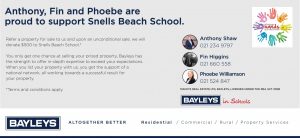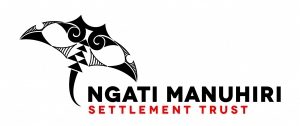Tēnā Koutou, Talofa Lava, Malo e Lelei, Namaste, Ni sa bula, Noaia’e mauri, Fakalofa lahi atu, Kia Orana, Ni Hao, An Nyung Ha Sai Yo, Nay Ho, Hej, Hallo, Sawat Dee, Cześć, Goeie Dag, សួស្តី, Здравствуйте, hola. Greetings to our school families.
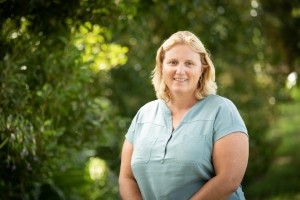 Today is Pink Shirt Day, also called Anti-Bullying Day. So called, because a boy in America was being bullied for choosing to wear a pink t-shirt. A group of his friends decided enough was enough, and all wore pink shirts in a sign of solidarity. Pink Shirt Day has evolved to an international day where we recognise the harmful effects of bullying in our society, and encourage everybody to Speak Up, Stand Together, Stop Bullying.
Today is Pink Shirt Day, also called Anti-Bullying Day. So called, because a boy in America was being bullied for choosing to wear a pink t-shirt. A group of his friends decided enough was enough, and all wore pink shirts in a sign of solidarity. Pink Shirt Day has evolved to an international day where we recognise the harmful effects of bullying in our society, and encourage everybody to Speak Up, Stand Together, Stop Bullying.
I don’t normally write this much, but feel really strongly that we need to have open and honest conversations about matters that affect our mental health, if we are going to support the next generation to be happier and healthier.
Bullying exists in all sectors of our society. We know people are more likely to be bullied if they seem different from their peers in some way. This might include being clever or popular, differences in race, religion, sexuality, gender identity, ethnicity, disabilities and abilities, weight or height. Some of the most harmful bullying I have witnessed has been between adults.
It’s not a “kid” thing. One of my biggest frustrations, as someone who works with kids, is hearing people say “kids can be cruel”. Kids actually have beautiful, open, accepting hearts and minds. Negativity towards others who are different in some way is a learned behaviour. Sometimes through their peers, but equally through the adults in their lives. Kids will sometimes recognise the difference, but there’s no negativity, until someone tells them it’s negative. Instead, we want to celebrate difference – be strong in your own beliefs and values, but respect others right to have their own. How do you model this with your kids?
A good way to empower kids to stand against bullying is to actually be able to identify it. To know when it’s happening to them, to recognise when it’s happening to others, and to know how do something about it. See below for information on this.
Nga mihi,
Kathryn Ramel
Principal
Welcome to our new students – we hope you enjoy your time at our school!
Kordei L-M
School Diary
Week 4: 24 – 28 May
- Mon 24.5 Middle School to Goodall Reserve 9.15-10.30am
- BOT Meeting 6:00pm
- Fri 28.5 MMK Raffle Draw
Week 5: 31 May – 4 June
- Tues 1.6 Parent Evening – “The Tough Stuff” – including sexuality & pubertal change
- Weds 2.6 Netball Zone Day (Year 5 & 6)
- Fri 4.6 Full School Assembly 2:10pm (Pur 2)
Week 6: 7 June – 11 June
- Mon 7.6 Queen’s Birthday (School Closed)
- Tues 8.6 Year 6 Camp Tongariro Depart
- Fri 11.6 Year 6 Camp Tongariro Return
Being rude, being mean and bullying. What does it all mean?
Everyone reading this has been rude or mean at sometime in their lives. Even if you didn’t realise your behaviour was being interpreted that way. Many people have felt bullied. These are things that happen when humans interact. It’s important that we teach kids to understand the difference between being rude, mean or being bullied, so we can give them the strategies they need to cope. The information below is from a child and adolescent therapist:
Being Rude
Being rude, is inadvertently saying or doing something that hurts someone else. In children this takes the form of social errors like “burping in someone’s face, jumping ahead in line, bragging about achieving the highest grade or even throwing a crushed up pile of leaves in someone’s face.” The critical factor? “Incidents of rudeness are usually spontaneous, unplanned inconsideration, based on thoughtlessness, poor manners or narcissism, but not meant to actually hurt someone.” This is a time where we encourage children to be resilient. To understand that there has been no long term effect, and that the other child may not have even realised they were being rude.
Being Mean
Being mean involves “purposefully saying or doing something to hurt someone once, or a few times.” Unlike unthinking rudeness, “mean behaviour very much aims to hurt or depreciate someone. Very often, mean behaviour in kids is motivated by angry feelings and/or the misguided goal of propping themselves up in comparison to the person they are putting down.” And while both rudeness and mean behaviour require correction, they are “different from bullying in important ways that should be understood and differentiated when it comes to intervention.” This is a time where we encourage children to be resilient, and tell a teacher or adult.
Being Bullied
Bullying is “intentionally aggressive behaviour, repeated over time, that involves an imbalance of power. Kids who bully say or do something intentionally hurtful to others and they keep doing it, with no sense of regret or remorse — even when targets of bullying show or express their hurt or tell the aggressors to stop.” Some examples of multiple kinds of bullying, including physical and verbal aggression, relational aggression (like social exclusion or rumour spreading), and cyberbullying. The key aspect to all of them is the ongoing nature of the behaviour, which leaves the victims feeling powerless and fearful. This is where kids need to know they must seek help. That being told not to nark is another form of bullying. That they must tell someone, preferably an adult, or a friend who will tell an adult for them.
If you come to one thing, come to this evening: “The Tough Stuff” – including sexuality education & pubertal change
Tuesday 1 June, 7:00pm, in the school hall. Koha donation on entry, if you can (cost shouldn’t be a barrier).
Strictly parents only – Miss Ramel may be able to supervise children here at school to support parents to attend. Email her on kramel@snellsbeach.school.nz
We are hosting a parent information evening, which will be presented by Kylie Ryan. Kylie is the founder of The Tough Stuff, and has over 20 years’ experience working in both public and private sectors, specialising in mental health, sexuality and bullying and harassment prevention. Kylie presents on the tough stuff across New Zealand, approaching mental health and sexual health in a fun, simple way that people can use in everyday life.
Think your kids are too young? Wrong! Little kids are way more likely to ask questions – they don’t even realise it can be an awkward subject. But how you answer their questions is critical. If you don’t answer their little questions, there is no way they will ask you the big questions when they’re older.
Think this will be awkward? Well, of course! No-one likes talking about it! But where do you want your kids getting their information from: you or their “expert” mates? Those of you that know Kylie will know to expect plenty of humour, giggles and downright inappropriateness, in amongst the wealth of information.
If you only come to one information evening during your child’s primary years, come to this.
Play Based Learning – Puriri 1 sharing their thinking
Kids learn through play. Often, they learn a lot more than they do sitting at a desk. They develop skills such as perseverance, problem solving, co-operation, negotiation and creativity. This week Judah, Sofia and Henry had to draw on all those skills work out how to transport water over a certain distance, dealing with frustrating leaks, blow-outs due to speed, and challenges with water-tightness and durability. They worked collaboratively through their break time, and were super proud when they got there in the end. Well done!
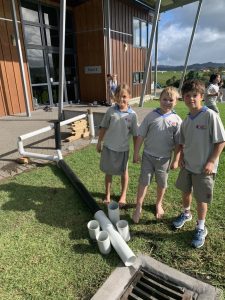
Saturday Hockey Teams – new shirts
Huge thanks to Anthony Shaw at Bayley’s Real Estate, who has been a long term sponsor of our Saturday Morning Hockey teams, supplying some smart looking t-shirts. Here’s a picture of the Shiny Bubble Sharks (SBS..see what they did there) junior hockey team, looking super sharp.
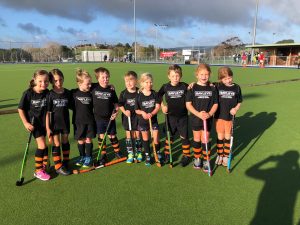
Carpark and Crossing Safety
A reminder, please, please, don’t park in the staff carpark. The only way out, is to drive directly through the line of kids leaving the school. It is NOT safe. You will sometimes see Teacher Aides leaving not long after 3pm, and this is managed, but a large number of vehicles is a real safety concern. Please don’t do it.
Also, please be aware that our crossing on-site, outside the office is an actual crossing. Please stop and support kids and their families to use this, and please do not park over it.
Parking around the school, particularly around 3pm can be a nightmare, we do understand. If your children are slightly older, or have older siblings, consider asking them to walk to a slightly less chaotic meeting point, such as by the fire station, or the tennis club, or join a Walking/Riding School Bus!
For our many new parents: Keeping in touch with what’s happening at SBS
Schools are busy places – especially in Term 1. The weather is warm, and classes are often out and about with events on. We strongly encourage parents to make sure they are in our communication loop by:
- ensuring that you are in our email database. You will receive the newsletter and other important notices direct to your inbox. This normally happens at enrolment, but sometimes only one parent’s email is used. We are happy to add parents and whanāu – please email us at admin@snellsbeach.school.nz and we can add you in.
- following us on our school Facebook page
- downloading our free school app. You will be sent notifications and reminders as necessary. To do this simply go to App Store (Apple) or Play Store (Android) and download the “Skool Loop” app. Once this is installed, use the drop down box to select “Snells Beach School”.
- please also update us if your phone number or emergency contacts have changed. There is honestly nothing worse than sitting with a sick or unwell child in the sickbay, and not being able to contact parents.
